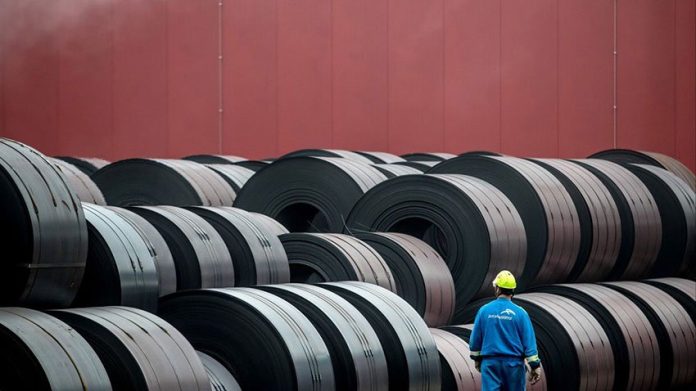The United States government agreed yesterday to lift its tariffs on Mexican and Canadian steel and aluminum, removing a major obstacle for the ratification of the new North American trade deal.
In exchange, Mexico and Canada pledged to remove their retaliatory tariffs on a range of U.S. products.
“We’ve just reached an agreement with Canada and Mexico and we’ll be selling our product into those countries without the imposition of tariffs or major tariffs,” United States President Donald Trump said.
His administration imposed tariffs of 25% and 10% on Mexican and Canadian steel and aluminum last June on national security grounds, angering its North American trade partners and complicating the trilateral negotiations to reach a trade pact to replace the quarter-century-old NAFTA.
As part of the tariff removal agreement, Mexico and Canada must adopt strict monitoring and enforcement measures to prevent subsidized Chinese steel entering the United States via their territory. In exchange, the United States said it would lift its tariffs in 48 hours.
No quotas will apply to Mexican and Canadian metal imports to the United States but if volumes significantly exceed historical levels, the U.S. reserves the right to impose new tariffs following consultation with the exporting country.
Trump said that the removal of tariffs paved the way for the U.S. Congress to ratify the United States-Mexico-Canada Agreement (USMCA), which despite a range of difficulties leaders of the three countries signed last November.
“That deal is going to be a fantastic deal for our country. Hopefully Congress will pass the USMCA quickly,” he said.
The Mexican government described the agreement reached with the United States as “beneficial for both parties” and said that its retaliatory tariffs on U.S. products, including pork, apples, cheese and bourbon, will be lifted once the metal duties are formally eliminated.
Economy Secretary Graciela Márquez said in an interview that the deal will allow Mexico’s steel and aluminum industries to be competitive again, while foreign affairs undersecretary Jesús Seade wrote on Twitter that Congress could now proceed towards ratifying the trilateral trade deal.
“With great enthusiasm, we welcome the decision of the United States president and the U.S. trade representative [Robert Lighthizer] to eliminate the steel and aluminum tariffs imposed on Mexico and Canada. This action opens the way to advance towards the ratification of the USMCA,” Seade said.
He also said difficulties in the relationship between the U.S. and China have helped Washington recognize the importance of a united North American trade bloc.
President López Obrador today credited his negotiators. “. . . it was a triumph for diplomacy and the negotiators of the government of Mexico and furthermore we even gave a little help to the government of Canada.”
Mexico’s steel exports to the U.S. did not suffer as a result of the tariffs. The U.S. Census Bureau said they were up 10% last year.
As part of the deal struck with their largest trading partner, Mexico and Canada both agreed to withdraw all complaints filed against the United States at the World Trade Organization.
Source: El Financiero (sp), Reuters (sp)
